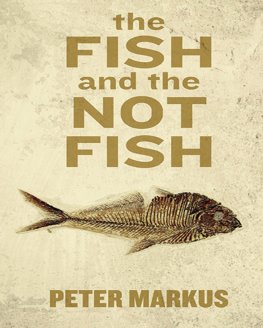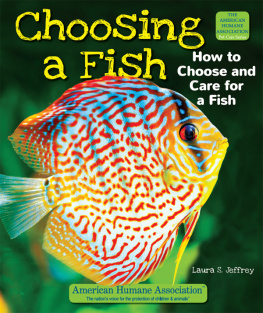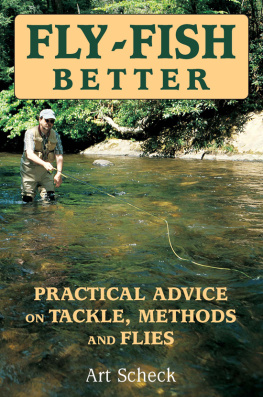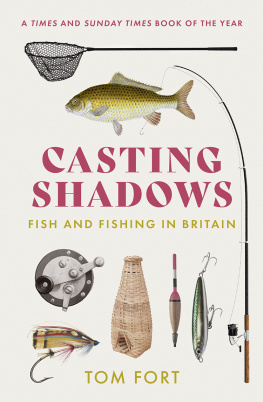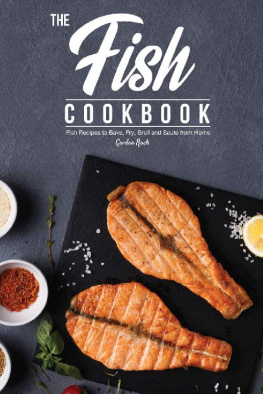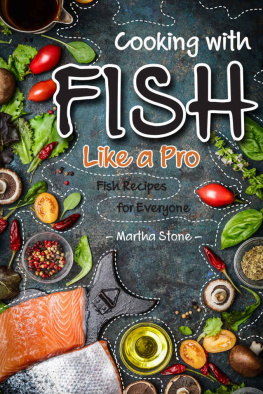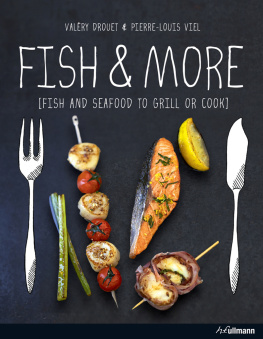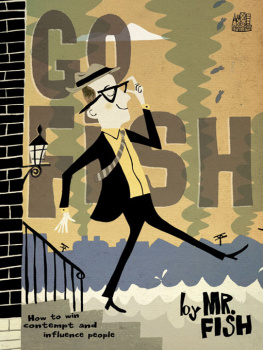DO FISH FEEL PAIN?
do fish feel pain?
VICTORIA BRAITHWAITE


Great Clarendon Street, Oxford OX2 6DP
Oxford University Press is a department of the University of Oxford.
It furthers the Universitys objective of excellence in research, scholarship,
and education by publishing worldwide in
Oxford New York
Auckland Cape Town Dar es Salaam Hong Kong Karachi
Kuala Lumpur Madrid Melbourne Mexico City Nairobi
New Delhi Shanghai Taipei Toronto
With offices in
Argentina Austria Brazil Chile Czech Republic France Greece
Guatemala Hungary Italy Japan Poland Portugal Singapore
South Korea Switzerland Thailand Turkey Ukraine Vietnam
Oxford is a registered trade mark of Oxford University Press
in the UK and in certain other countries
Published in the United States
by Oxford University Press Inc., New York
Victoria Braithwaite 2010
The moral rights of the authors have been asserted
Database right Oxford University Press (maker)
First published 2010
All rights reserved. No part of this publication may be reproduced,
stored in a retrieval system, or transmitted, in any form or by any means,
without the prior permission in writing of Oxford University Press,
or as expressly permitted by law, or under terms agreed with the appropriate
reprographics rights organization. Enquiries concerning reproduction
outside the scope of the above should be sent to the Rights Department,
Oxford University Press, at the address above
You must not circulate this book in any other binding or cover
and you must impose the same condition on any acquirer
British Library Cataloguing in Publication Data
Data available
Library of Congress Cataloging in Publication Data
Data available
Typeset by SPI Publisher Services, Pondicherry, India
Printed in Great Britain
on acid-free paper by
Clays Ltd., St Ives Plc
ISBN 9780199551200
1 3 5 7 9 10 8 6 4 2
FOR
Andrew, James and Matthew
Preface
In 2006 Nick Goldberg, an editor at the Los Angeles Times, asked me to write a brief Op-Ed piece on whether fish feel pain. After the article appeared, the newspaper and I received letters and emails. These were of two sorts. Some told me that I was persecuting anglers by spreading untruths and mythswasnt it clear to everyone that fish dont feel pain? But the others wanted to know why I bothered to investigate the questionwasnt it clear to everyone that fish do feel pain?
I had a certain amount of sympathy with both camps. I could identify with those who believed I was threatening the angling community. That was not my intention, but there had been a great deal of inaccurate information written about research on pain in fish so it was understandable that some people were being defensive. On the other hand, how were the others to know that no scientific analysis of even the basics of fish pain had been conducted before the turn of this century?
Those polarized reactions, which also played out on various websites, prompted me to wonder whether there was a need for a fuller account of the science behind the fish pain debate. The result is this book.
I havent always been a fish biologist. I started my research career working with birds, asking questions on cognition such as What makes some animals smarter than others? Fifteen years ago, however, I switched to fish. To me it wasnt a big change, I was still asking the same kind of question, but it was easier to compare cognition among different populations of fish than it was for birds. To many of my colleagues, though, it was a curious move, and several even thought it a move backwards. Why fish? they would ask me, and invariably this was followed by a bit of a snigger and, Dont they have a three second memory? The reaction of my colleagues was tellingfish are perceived as less worthy. But why?
Up to then, my experience with fish was very limited. Like many children, I kept goldfish when I was younger, but other than that I knew very little. Yet as I discovered more and more about the biology, physiology and behaviour of fish, I became engrossed. They really are seductive. My family know this to their cost because I can rarely pass a pond, stream or river without stopping to search for a tiny bit of movement, the slightest flash of silver that betrays a fishs position. It has sometimes seemed that traditional roles have been reversed in my familymore than once one of my young sons would slip his hand into mine and plead, Come on Mum!, as he coaxed me away from the waters edge.
To this day, however, I dont regret my decision to move from feathered creatures to venture underwater into a piscine world. Fish are smart if you ask the right questions. And, by the way, it turns out that several fish species have excellent memories that can last several days, and in some cases even months.
My goal in writing this book has been to provide the background to promote informed discussion. Like other animal welfare debates, constructively arguing about fish welfare requires that we understand the issues, that we review evidence and discuss this appropriately. In the book, I examine what we know so far about pain in fish, and whether it is meaningful to discuss fish welfare at all. After reading the book, I hope you will be in a position to make up your own mind. I have no axe to grindI choose to eat fish and I experiment on them, but while I have been fishing in the past, I am not an active angler though I have many friends and colleagues who are. As the book began to take shape it became clear that the fish pain debate probes questions about science, welfare and ethics. It draws us towards difficult, grey areasif fish feel pain, then what about octopus, squid and lobsterswhere do we draw the line? This might be the first book in a series, or the next one might be the last.
Much of the material I present has benefited from discussions with many colleagues and friends. As the book began I was lucky enough to be resident at the Wissenshcaftskolleg zu Berlin (Institute for Advanced Study) in Germany. I could not have asked for a more stimulating place to think and write and I thank Wiko and the many Fellows who took time to discuss pain in fish with me. When I first began to focus on fish welfare I found conversations with my long term mentor, collaborator and friend Felicity Huntingford incredibly usefulshe and the colleagues she introduced me to helped shape my views. Throughout the writing of this book I have had collaborations with the University of Bergen and the Institute for Marine Research in Norway. Many people there have shared their opinions and answered questions, but in particular I thank my collaborator and friend Anne Gro Vea Salvanes and our student Olav Moberg for their continuing input. And I am grateful to Mike Gentle for first suggesting that we get together to do our part in the science I describe in the book and to the UKs Biotechnology and Biological Sciences Research Council for funding it. I also thank Bob Elwood for constructively disagreeing with my views on hermit crabs. My new Penn State University colleagues especially Bob Carline and Gary San Julian have been stimulating foils for debate. I hope they see the merit in discussing this. Even if we dont discuss it, others will.
As the concept of the book was forming I had doubts and I am grateful to Gabrielle Archard, Mike Beentjes, Phil Boulcott, Nichola Brydges, Zach Colvin, Clive Copeman, Bryan Ferguson, Cairsty Grassie, Sue Healy, Andrew Illius, In Kim, Sean Nee, Mark Viney, Dan Weary and my New . Much of how I think about animal welfare comes from time spent with Marian. Again and again I am amazed at how far ahead of her time she has been and how articulately she explains the welfare world. Her impact on welfare science has been substantial and is likely to become greater as the scientific community catches up.
Next page


